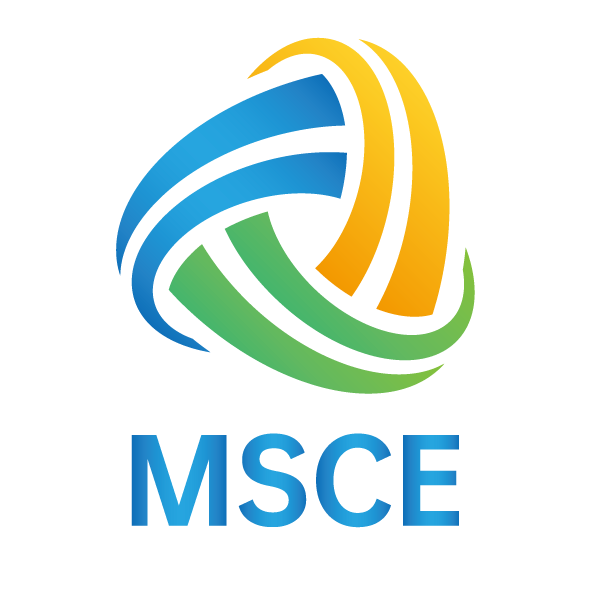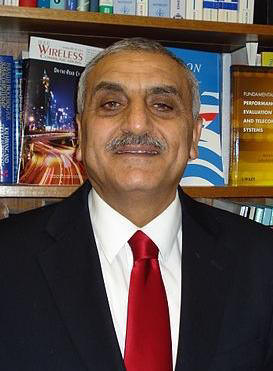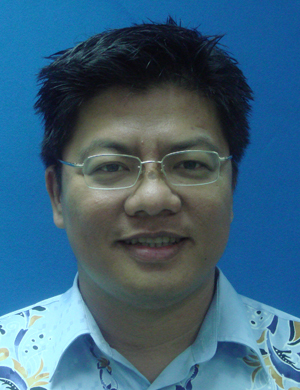| Prof. Mohammad S. ObaidatKing Abdullah II School of Information Technology, (KASIT), The University of Jordan, Amman, Jordan Life Fellow of IEEE, Fellow of AAIA, Fellow of FTRA, Fellow of AIIA, and Fellow of SCS Introduction: Professor Mohammad S. Obaidat is an internationally known academic/researcher/scientist/ scholar. He received his Ph.D. degree in Computer Engineering with a minor in Computer Science from The Ohio State University, Columbus, USA. He has received extensive research funding and published To Date (2023) over One Thousand (1,200) refereed technical articles-About half of them are journal articles, over 100 books, and over 70 Book Chapters. He is Editor-in-Chief of 3 scholarly journals and an editor of many other international journals. He is the Editor-in Chief of the Wiley International Journal of Communication Systems and Founding Editor-in Chief of Wiley Security and Privacy Journal. He is also the founding Advisory Editor of the Cybersecurity and Applications Journal, KeAi. Moreover, he is founder or co-founder of 5 IEEE International Conferences. Among his previous positions are Advisor to the President of Philadelphia University for Research, Development and Information Technology, President and Chair of Board of Directors of the Society for Molding and Simulation International(SCS), Senior Vice President of SCS, SCS VP for Membership and SCS VP for Conferences, Dean of the College of Engineering at Prince Sultan University, Founding Dean of the College of Computing and Informatics at The University of Sharjah, Chair and tenured Professor at the Department of Computer and Information Science and Director of the MS Graduate Program in Data Analytics at Fordham university, Chair and tenured Professor of the Department of Computer Science and Director of the Graduate Program at Monmouth University, Chair and Professor of Computer Science Department at University of Texas-Permian Basin, Distinguished Professor at IIT-Dhanbad, Tenured Full Professor at King Abdullah II School of Information Technology (KASIT), University of Jordan, The PR of China Ministry of Education Distinguished Overseas Professor at the University of Science and Technology Beijing, China and an Honorary Distinguished Professor at the Amity University- A Global University. He is now a Distinguished Professor at KASIT, University of Jordan. He is also a Distinguished Professor at SRM University, India. He has chaired numerous (Over 185) international conferences and has given numerous (Over 185) keynote speeches worldwide. He has served as ABET/CSAB evaluator and on IEEE CS Fellow Evaluation Committee. He has served as IEEE CS Distinguished Speaker/Lecturer and an ACM Distinguished Lecturer. Since 2004 has been serving as an SCS Distinguished Lecturer. He received many best paper awards for his papers including ones from IEEE ICC, IEEE Globecom, AICSA, CITS, SPECTS, DCNET, IEEE ICCCA, International conferences. He also received Best Paper awards from IEEE Systems Journal in 2018 and in 2019 (2 Best Paper Awards). In 2020, he received 4 best paper awards from IEEE Systems Journal and also in 2021 received the best paper award from IEEE Systems Journal. During his tenure as Founding Dean of College of computing and Informatics at University of Sharjah, the Computer Sciences program has been ranked by Times for Higher Education (THE) as NUMBER 1 in UAE and for the first time in the history of the University He also received many other worldwide awards for his technical contributions including: The 2018 IEEE ComSoc-Technical Committee on Communications Software 2018 Technical Achievement Award for contribution to Cybersecurity, Wireless Networks Computer Networks and Modeling and Simulation, SCS prestigious McLeod Founder's Award , Presidential Service Award, SCS Hall of Fame –Lifetime Achievement Award for his technical contribution to modeling and simulation and for his outstanding visionary leadership and dedication to increasing the effectiveness and broadening the applications of modeling and simulation worldwide. He also received the SCS Outstanding Service Award. He was awarded the IEEE CITS Hall of Fame Distinguished and Eminent Award. He also received the Nokia Distinguished Fellowship Award and Fulbright Distinguished Scholar Award, among others. He is on the World's Top Career-long top 2% Scientists as per Stanford University recent list. Professor Obaidat has been ranked recently by ScholarGPS as the top Lifetime scholar in the World in Telecommunications Systems Management and the top scholar in Telecommunication in the World in prior 5 Years He was ranked recently by research.com agency as number ONE Computer Scientist and number ONE Scholar in Electronics and Electrical Engineering in Jordan. In recognition of his significant scientific contribution, Springer published in 2022 a book honoring his contributions in Computing, Informatics, Networking and Cybersecurity. It is entitled: Advances in Computing, Informatics, Networking and Cybersecurity - A Book Honoring Professor Mohammad S. Obaidat’s Significant Scientific Contributions. Prof. Obaidat is a Life Fellow of IEEE, a Fellow of AAIA, Fellow of FTRA, Fellow of AIIA, and a Fellow of SCS. |
| Prof. Teh Ying WahUniversity Malaya, Malaysia Research Areas: Data Mining, Database Introduction: As a highly accomplished computer scientist and data mining expert with over 35 years of experience, I have demonstrated exceptional leadership, expertise, and vision in the field. Over the course of my career, I have achieved numerous successes and made significant contributions to the industry. I began as an entry-level computer programmer in 1988 and advanced to become a Professor of Data Mining at the Faculty of Computer Science and Information Technology at the University of Malaya. I obtained my tertiary academic qualifications from Oklahoma City University and the University of Malaya, and I have published more than 90 academic papers in top-tier journals, including Information Fusion and the International Journal of Information Management. |


